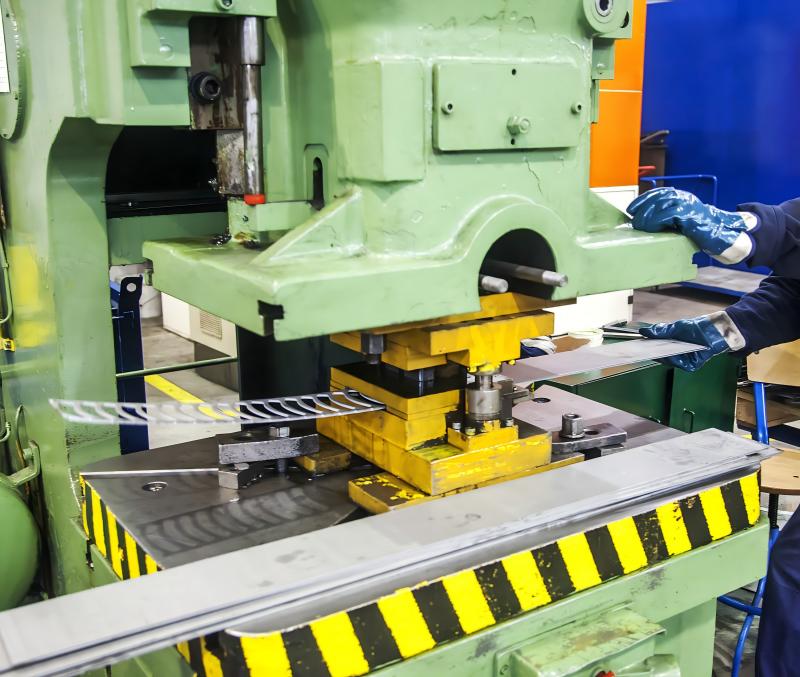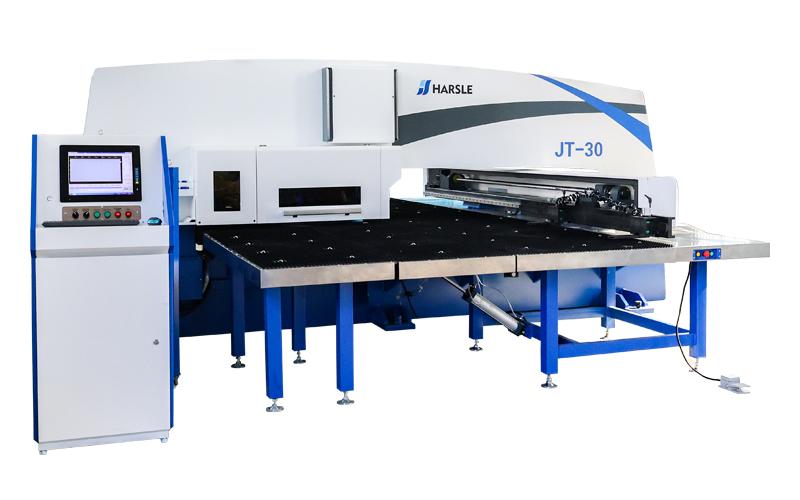Hub di documentazione
Manuali tecnici e guide complete per aiutarti a padroneggiare le macchine HARSLE e ottimizzare l'efficienza della lavorazione dei metalli
Qual è l'impatto ambientale delle punzonatrici?
Se stai esplorando macchine punzonatrici Per le vostre esigenze produttive, comprendere l'impatto ambientale delle punzonatrici è fondamentale. In questo articolo, vi guiderò attraverso le principali considerazioni ecologiche legate a queste essenziali macchine per la lavorazione dei metalli. Imparerete a conoscere il loro consumo energetico, la produzione di rifiuti, le emissioni acustiche e come la scelta delle attrezzature giuste possa ridurre significativamente l'impatto ambientale della vostra attività. Che vogliate rispettare le normative di settore o puntare a una produzione sostenibile, questa guida vi aiuterà a prendere decisioni consapevoli.
Efficienza energetica delle punzonatrici

Valutazione dei livelli di consumo energetico
Le punzonatrici possono variare significativamente nel consumo energetico, in gran parte influenzato dal tipo di sistema di azionamento utilizzato. Le punzonatrici meccaniche in genere consumano meno energia rispetto alle versioni idrauliche; tuttavia, le moderne punzonatrici servoelettriche offrono un'efficienza ancora maggiore. Se il vostro obiettivo è ridurre l'impatto ambientale delle punzonatrici nella vostra azienda, investire in modelli servoelettrici può essere la scelta ideale. Queste macchine funzionano utilizzando motori elettrici e servocomandi avanzati, riducendo drasticamente il consumo di energia durante le fasi di inattività e di lavoro.
Implementazione di pratiche di risparmio energetico
Oltre alla scelta di apparecchiature a risparmio energetico, l'adozione di pratiche operative orientate al risparmio energetico può ridurre ulteriormente l'impatto ambientale delle punzonatrici. Spegnere le macchine durante i periodi di inattività prolungati, programmare in modo efficace i cicli di produzione ed eseguire controlli di manutenzione regolari per mantenerle in condizioni ottimali sono passaggi essenziali. L'implementazione di queste semplici strategie può ridurre significativamente il consumo energetico complessivo della vostra struttura, riducendo sia l'impatto ambientale che i costi energetici.
Generazione di rifiuti e utilizzo dei materiali

Riduzione al minimo della produzione di rottami metallici
I processi di punzonatura producono intrinsecamente scarti metallici, ma un eccesso di scarti può aumentare significativamente l'impatto ambientale. Per risolvere questo problema, consiglio di ottimizzare il layout della lamiera con un software di nesting avanzato per ridurre gli sprechi di materiale non necessari. Un utilizzo efficiente dei materiali non solo consente di risparmiare risorse, ma riduce anche i costi e l'impatto ambientale associati allo smaltimento e al riciclo dei metalli.
Strategie di riciclaggio e gestione dei rifiuti
L'implementazione di un programma di riciclaggio efficiente può ridurre drasticamente l'impatto ambientale delle punzonatrici. Riciclando i rottami metallici, si contribuisce a ridurre la domanda di materie prime e i processi di estrazione ad alto consumo energetico. Assicuratevi che il vostro impianto disponga di contenitori per la raccolta differenziata chiaramente contrassegnati e formate i dipendenti per migliorare la partecipazione ai programmi di riduzione dei rifiuti.
Considerazioni sull'inquinamento acustico e atmosferico

Riduzione dell'inquinamento acustico
Le punzonatrici generano un rumore notevole durante il funzionamento, che può avere un impatto sulla salute dei lavoratori e sull'ambiente circostante. Le punzonatrici moderne sono spesso dotate di tecnologie di insonorizzazione. Nella scelta delle attrezzature, è opportuno dare priorità ai modelli con cabine acustiche integrate o sistemi di riduzione del rumore. Inoltre, l'implementazione di barriere fonoassorbenti e la fornitura di protezioni acustiche possono migliorare significativamente la sicurezza sul posto di lavoro.
Gestione dei problemi di qualità dell'aria
I processi di punzonatura possono rilasciare contaminanti atmosferici, come nebbie di lubrificante o particolato metallico. Sistemi di ventilazione e filtrazione adeguati sono essenziali per mantenere la qualità dell'aria interna e garantire la conformità alle normative. La scelta di punzonatrici con aree di lavorazione chiuse o sistemi di aspirazione delle polveri integrati può mitigare ulteriormente l'impatto ambientale degli inquinanti atmosferici.
Tecnologie di macchine ecocompatibili
Punzonatrici servoelettriche

Le punzonatrici servoelettriche offrono notevoli vantaggi ambientali grazie al controllo preciso, al ridotto consumo energetico e alla minore generazione di calore. Queste macchine eliminano la necessità di olio idraulico, eliminando così il rischio di perdite di olio e di contaminazione ambientale. Investire nella tecnologia servoelettrica rappresenta un passo proattivo verso pratiche di produzione sostenibili.
Soluzioni di lubrificazione sostenibili
L'adozione di tecnologie di lubrificazione biodegradabili o minimali può ridurre significativamente i rischi di inquinamento ambientale. I lubrificanti idrosolubili o a base vegetale riducono i danni ecologici in caso di fuoriuscite, offrendo alternative efficaci ai tradizionali oli a base di petrolio. L'integrazione di questi lubrificanti ecocompatibili nelle vostre operazioni di punzonatura dimostra il vostro impegno per la tutela dell'ambiente.
Domande frequenti (FAQ)
D: Come posso ridurre il consumo energetico della mia punzonatrice?
R: È possibile ridurre significativamente il consumo di energia investendo in punzonatrici servoelettriche, spegnendo le macchine durante i periodi di inattività, eseguendo una manutenzione regolare e ottimizzando la pianificazione della produzione.
D: Quale tipo di punzonatrice è più ecologica?
R: Le punzonatrici servoelettriche sono generalmente le più ecologiche grazie alla loro superiore efficienza energetica, all'eliminazione dell'olio idraulico e alla riduzione del rumore e dell'inquinamento atmosferico.
D: I lubrificanti biodegradabili sono efficaci per le punzonatrici?
R: Sì, i lubrificanti biodegradabili sono alternative efficaci ai tradizionali lubrificanti a base di petrolio. Riducono al minimo i rischi di contaminazione ambientale, mantenendo al contempo le necessarie prestazioni di lubrificazione.
Conclusione
Comprendere e mitigare l'impatto ambientale delle punzonatrici è fondamentale per una produzione moderna e sostenibile. Scegliendo modelli a risparmio energetico come le macchine servoelettriche, implementando strategie efficaci di gestione e riciclo dei rifiuti, riducendo l'inquinamento acustico e atmosferico e adottando lubrificanti ecocompatibili, è possibile ridurre significativamente l'impatto ecologico della propria attività produttiva. Se state pensando di aggiornare le vostre attrezzature o avete bisogno di ulteriori indicazioni sulle pratiche di lavorazione dei metalli sostenibili, contattate il nostro team HARSLE: siamo qui per assistervi in ogni fase del processo.













